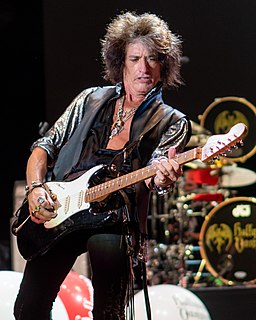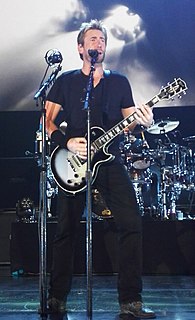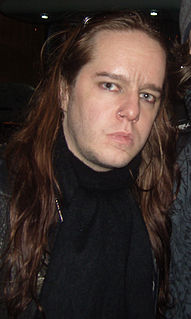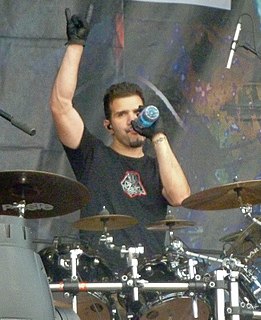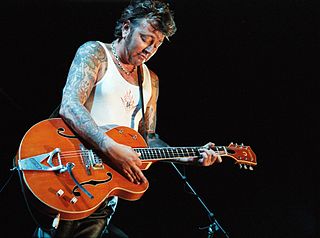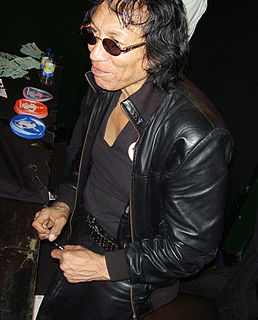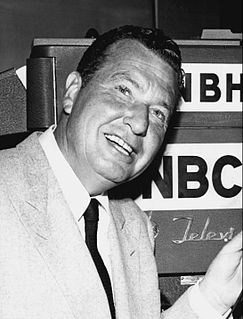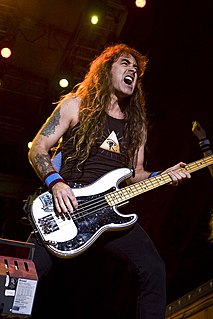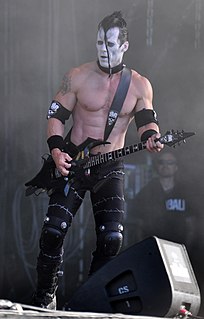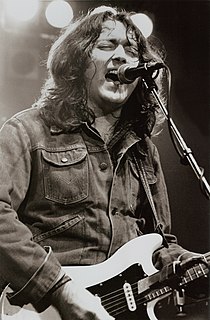A Quote by Joe Perry
Some of the best rock riffs ever written were by Jimmy Page, and I can't really name the songs, but some of the stuff he did on his first and second records is beyond brilliant.
Related Quotes
Too many times I've heard records from bands who were obviously, like, 'Well, we're at least gonna do half as well as we did on our last record. At least we can count on that.' You really have to keep that initial hunger that made some of your first best songs your first best songs. You have to keep that fire in the belly.
I just went into my studio and started to compile stuff. I was so happy with what was coming out that good momentum just carried over and when I would listen back to some of the riffs and some of the ideas, I was completely happy because I felt like, "wow, this was a breakthrough!" The ideas and the songs were really strong and I couldn't wait to show everybody the stuff.
The Replacements are the foundation for a lot of what came after in alternative and college rock. Let It Be is their best record and has the most diverse collection of songs. Some pop stuff, some heavy stuff, and some real moments of beauty like 'Sixteen Blue' and 'Androgynous.' It's a record I always go back to.
... so much of what we do now started in 1954 at Sun Records in Memphis Tennessee ... those guys were inventing that stuff (Rock & Roll) ... you can really tell on some tracks ... they were actually afraid at times of what they were playing. But Rock & Roll definitely didn't come before that time; it started right there
I once won a Grammy for an Australian version of 'Turn the Page' that another artist did; I can't remember his name. There've been covers down through the years around the world, but I did like Metallica's, because I kind of related to Metallica when they first came out, because Jimmy Hetfield really reminded me of me in 1965, you know?
All the songs that were written for that album are just all our first sophomore songs. So they're all from real life. Very sweet and very innocent. I think the theme of the album probably was just that it was our first record. ... Back when we were first making records, you didn't just make the music, you put a great deal of energy into the way it looked, and every word that was written on the whole thing.
The first songs I learned were 'It Takes a Worried Man' and Woody Guthrie's 'Grand Coulee Dam,' 'Rock Island Line' - those kind of American folk songs that were probably on the edge of blues. After that was Eddie Cochran and Chuck Berry songs. And then I heard Muddy Waters, Jimmy Reed and Big Bill Broonzy on the radio.
